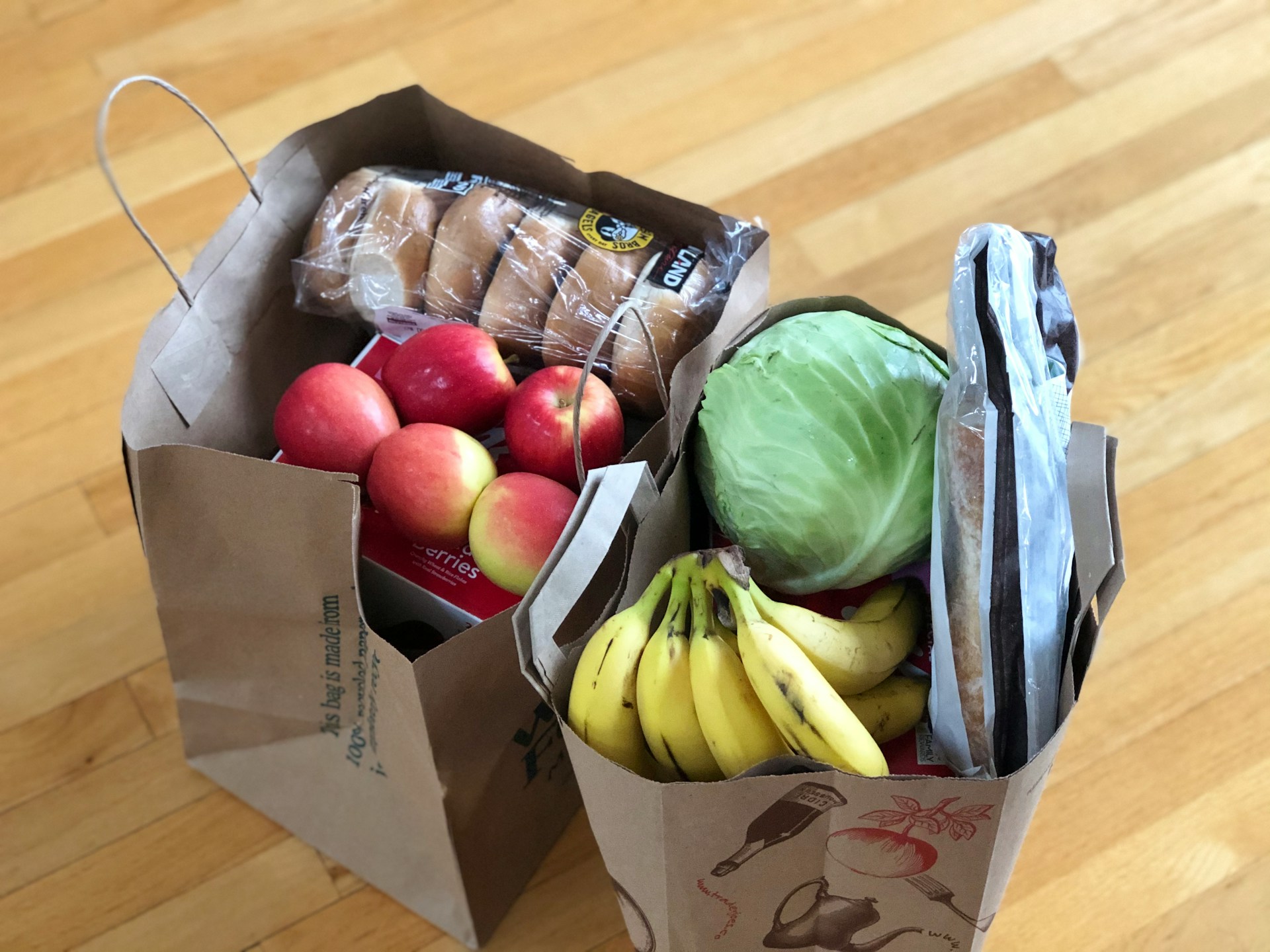
It’s funny how something as simple as a grocery bag can reveal a lot about a person’s lifestyle. Whether it’s the logo on the front, the items peeking through the top, or even the type of bag itself, your groceries quietly broadcast financial and social clues to everyone around you. From reusable Whole Foods totes to plastic bags stuffed with discount-brand cereal, each choice sends a message. In today’s world of social comparison and subtle status symbols, even your shopping habits can hint at your budget—or your priorities. Here’s what your grocery bags might be saying about your finances without you even realizing it.
Branded Grocery Bags Signal Social Awareness and Income Level
Carrying a reusable Whole Foods, Trader Joe’s, or Erewhon bag instantly gives off an image of health-conscious affluence. These brands have become shorthand for consumers who prioritize organic food and sustainability—traits often associated with higher disposable income. Even if you only shop there occasionally, neighbors may assume you do so regularly based on that single bag. Reusable branded totes also signal a level of mindfulness that aligns with “conscious consumer” culture. In many ways, your grocery bag has become the new designer handbag for the health-savvy middle class.
Discount Store Bags Suggest Practical Priorities
Walking home with plastic bags from Aldi, Dollar General, or Walmart doesn’t necessarily mean financial struggle—it often signals practicality. Shoppers who frequent these stores are seen as budget-smart, cost-aware, and immune to marketing trends. These grocery bags project an image of frugality and focus on value over vanity. In today’s economy, that mindset is admired more than ever, as inflation reshapes how people shop. Ironically, the person carrying discount store bags might have more savings than the one flashing a high-end brand.
Bulk Store Bags Hint at Family Size and Stability
Large brown boxes or big blue Costco bags immediately signal one thing: you’re shopping for a household, not just yourself. Bulk shoppers are often viewed as planners—people who value efficiency and stability. These purchases suggest financial foresight since buying in bulk requires a larger upfront cost but saves money long-term. Neighbors might assume you’re family-oriented or running a busy home. Costco, Sam’s Club, and BJ’s bags tell the world you think ahead, not just week to week.
Farmer’s Market Totes Suggest Disposable Income
Reusable canvas bags filled with fresh produce and local goods scream both eco-consciousness and discretionary spending. Farmer’s market shopping isn’t usually cheap—it’s often about quality and experience rather than necessity. People associate those bags with leisure, health, and community involvement. While it’s a wholesome image, it also quietly implies financial breathing room. After all, when someone spends $9 on local honey, it’s clear they’re not living paycheck to paycheck.
Luxury Grocery Bags Reflect a Lifestyle of Comfort
Carrying bags from upscale stores like Whole Foods 365, Sprouts, or Wegmans often signals that convenience outweighs cost. These stores cater to a demographic willing to pay more for organic options, prepared meals, and aesthetic presentation. Neighbors might view those shoppers as successful, health-conscious professionals or empty nesters with disposable income. Even a glimpse of artisan bread or imported cheese peeking from the bag reinforces that perception. In many communities, your grocery bags can function as subtle symbols of social standing.
Reusable Cloth Bags Reflect Long-Term Thinking
Beyond branding, the choice to use reusable cloth bags often says something deeper about your mindset. People who bring their own bags project an image of organization, environmental awareness, and consistency. Reusable bags also save small amounts of money over time, hinting at a frugal yet forward-thinking personality. In many suburban and urban areas, reusable bags are seen as both eco-friendly and financially savvy. They communicate that you care about sustainability—not just for the planet but for your wallet, too.
Delivery Bags Suggest Convenience and Busy Lifestyles
When neighbors see grocery delivery bags from services like Instacart, Shipt, or Amazon Fresh, they often infer financial comfort or a packed schedule. Paying for delivery adds convenience at a cost, which can suggest a higher income bracket or a lack of free time. These services are particularly popular among professionals balancing careers and family obligations. However, they can also signal a shift in priorities—valuing time over thrift. Delivery bags, especially branded ones, tell others you’re part of the digital-era convenience economy.
Generic or Reused Bags Reflect Quiet Frugality
On the opposite end of the spectrum, shoppers who reuse bags—no matter the logo—often reflect resourcefulness and financial mindfulness. These individuals prioritize practicality over image and may take pride in saving every penny. While some might see reused bags as unglamorous, they often represent the smartest shoppers in the neighborhood. Reusing bags from past trips, events, or different stores subtly communicates thriftiness and environmental awareness. It’s a quiet financial statement: “I don’t waste money—or plastic.”
Grocery Bags Are the New Social Currency
Whether you realize it or not, your grocery bags offer small but telling insights into your lifestyle. They hint at how you budget, what you value, and how you balance convenience with cost. In neighborhoods where people notice everything—from lawns to shopping habits—those details speak volumes. But the truth is, no bag tells the full story of someone’s financial reality. Whether you’re a budget shopper or a brand loyalist, what matters most is that your grocery bags hold what you truly value—literally and figuratively.
Do you think grocery bags really reflect a person’s financial habits—or is it all in our heads? Share your take in the comments below!
What to Read Next
- Here’s What Your Choice of Grocery Cart Size Says About Your Finances
- What Your Grocery List Says About Your Finances
- What’s Causing the Shortage of Ziplock Bags in Big Cities?
- No More Free Bags? Why This Could Be A Costly Mistake For Southwest Airlines
- Top 5 Reusable Grocery Bags to Save Money and the Planet
The post What Your Grocery Bags Tell Neighbors About Your Finances appeared first on Grocery Coupon Guide.







